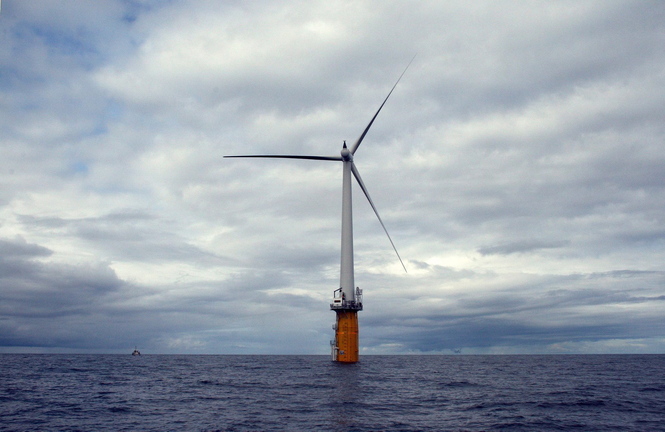Gov. LePage’s energy policy rests on three principles: Renewable power is too expensive to be practical, access to natural gas is what will make Maine manufacturing competitive and Maine will be able to buy low-cost hydroelectric power from Quebec.
The problem is that it’s possible that none of those things may be true.
• The price of renewable power from wind and solar is dropping.
• There is no guarantee that the kind of infrastructure needed to bring gas from western Pennsylvania to New England will be built in time to take advantage of the historic low prices.
• And the government-owned power company in Quebec would not likely sell electricity to Maine at the subsidized price that it offers inside its borders.
The energy sector is changing rapidly, and no one knows for sure which sectors will pay off. It doesn’t make much sense to shut down options and innovation now. But unfortunately, that is what Gov. LePage has chosen to do.
It was no surprise last week when Statoil, the Norwegian energy company, announced that it would take its $120 million investment elsewhere, after Gov. LePage and the Legislature rewrote the contract Statoil had been awarded by the Public Utilities Commission earlier this year.
Instead of having an exclusive contract in which Maine electricity users would buy power from an experimental ocean wind platform, Statoil was informed that it was now in a competition with the University of Maine and its private-sector partners.
It is tempting to say that Statoil’s departure represents a failure of the governor’s energy policy, but it does not. This is exactly what the governor wanted, and chasing this private-sector investment from Maine has been the administration’s intent ever since Statoil was awarded the contract with the PUC.
Back in June, this strategy was described as an attempt to help the University of Maine get the funds it needs to complete its ocean wind project, but internal emails obtained by The Associated Press show that the administration was more interested in stopping Statoil than in helping UMaine. University researchers and their partners should not be overly confident about their ally in the Blaine House. Now that Statoil is out of the way, UMaine could be next.
This development comes as the price of renewable energy is dropping and other states are taking advantage. Massachusetts and Connecticut have agreements with a wind power company to provide electricity generated in Maine at prices competitive with natural gas. If successful, ocean-based wind power has the potential to produce more electricity at lower costs than onshore wind farms, creating a hedge if gas prices climb.
Gov. LePage says that reducing the cost of electricity is one of his top priorities. We will soon see if his shortsighted anti-wind strategy is the way to do that.
Send questions/comments to the editors.



Comments are no longer available on this story